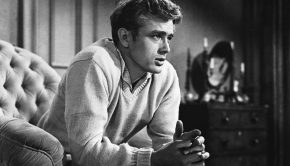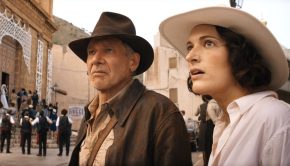The Great Beauty (La Grande Bellezza)
It’s a weird contradiction that life can whiz by at light speed, but also crawl past ever so slowly. Parents will tell you that they measure epochs in the developmental stages of their children; first baby is helpless, then baby can sit up, and suddenly, the little bugger is stumbling around and trying to wreck all your favourite stuff. Next thing you know, he’s off to college. Every day seems like forever, but the years shoot past so damn quickly. The Great Beauty, this year’s Oscar winner for Best Foreign Picture, is hugely concerned with the paradoxical passage of time and how it can give you the opportunity to fulfill your potential or make a fool of you.
The film tells the story of a writer, Jep Gambardella, who is turning 65 and has been a fixture of the opulent nightlife in Rome for many years. He had wild success as an author with one book many moons ago, and while he leveraged that into a career as a journalist, he never delivered the second novel that would have cemented his reputation as a true great. Even after all this time, people are still asking him when that book will come out. He floats through Rome, drinking and dancing, going to strange art installations, and hanging out with his friends. When a bit of his past comes back to haunt him, it causes him to reflect on where the time went.
You’re going to hear a lot of comparison to Baz Luhrmann in most reviews, so I won’t bother to dig too deeply into that. Sure, it’s true in certain lavish moments, but it’s not all that interesting to me, and given the lack of depth in most Luhrmann movies, this comparison does The Great Beauty a disservice. Comparisons to Federico Fellini are much more on the mark, and in fact, writer/director Paolo Sorrentino is often linked to Fellini. I would still look beyond the idea that this is just an update of La Dolce Vita though, as Sorrentino clearly has his own things going on. The Great Beauty feels at times like a Simpson’s parody of a ‘foreign movie,’ with no shortage of dwarves, giraffes, and reality blurring on Italian high society. This ‘parody’ seems intentional. Sorrentino plays with our expectations.
The movie is funny; especially when it explores some of the characters Jep surrounds himself with, like his friend that’s a bit of a loser or the catty women who gossip at the parties. Sometimes humour is found in quick-witted turns of phrase, and sometimes it’s swimming in clever observations about high society and hypocrisy that cut to the bone. His shallow group of friends (do they get a group discount on Botox?) have a depth of character to study, even if some of their dialogue feels expository or on the nose.
Toni Servillo as Jep is the key to it all; he perfectly embodies the contradictions within his character — Jep is charismatic but smug, young at heart but acutely aware of his aging. He is smart enough to be in tune with his ennui, to make half-hearted excuses for the reason he never followed up on his literary masterpiece. Each time that question is asked, it must be like twisting a knife in his soul, but he wanly smiles it away, coolly blaming Rome. And as a side note, that man looks good in those suits.
There is style here, to be sure, but style that also has substance. Shots that help tell the story, even beyond the framing of contemporary Rome itself. At the start of the film, there is a shot where Jep leans back to bask in the adulation of his friends and hangers-on. The camera tilts back with him, and for a second, it appears that he has leaned so far back that his spine must be bent in an unholy manner. In reality, the actor must stop leaning back, but the illusion of the ultimate limbo is retained as the camera keeps spinning with fluid motion, until the image is fully upside down. Is it an elegant way of showing that Jep has leaned so far back in his basking, that he has become drunk on adulation? And if we can so elegantly tell a story with simple camera movements like this, why do we need the vulgar, mouth breathing of 3D?
The movie isn’t heavily plotted and it meanders a bit, the way Jep wanders around Rome after dark. It might cause the attention of some viewers to wane in moments, but it never goes too far off the path. It’s not a perfect movie, but it is a triumph. It shows us marvelous things like the Coliseum at dusk, it revels in biting humour, and it also shows us sadness and profundity.
My wife and I had a son last year, which comes a bit later in life for me. Rather than having a child at 20 and watching him grow into a man as I approach 40, I’ll be watching him grow up as I near Jep’s age. It makes me acutely aware of my own mortality. It’s a weird position to be in; on one hand, I look forward to things like his first word or watching his face as I show him certain films for the first time. But on the other hand, each milestone he achieves feels like a signpost on the race to my own grave. Sure, Jep’s life is about glamour and parties, and mine will be about trying to keep a toddler’s hands off my record collection, but this is the unmistakable feeling of time passing that The Great Beauty manages to achieve so well. Unlike Jep, I can only hope, we can all only hope, that we can look back on our lives and know it all meant something.














